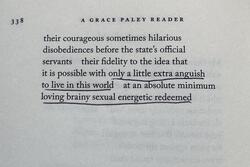Book Review: Waveland
It seems fitting that as I sit down to write this review, I am receiving Facebook updates from the #FordHall2015 group at my alma mater, Brandeis University. For nearly two weeks this group of Black students and allies occupied the administrative building on campus to demand that the university rededicate itself to racial justice and equality. The hashtag #FordHall2015 commemorates earlier actions for the same cause, and while student leaders of color are celebrating online, I, a white alumna half way across the country, continue my own journey of learning about what white allyship, solidarity, and sacrifice really means. Reading Simone Zelitch’s novel Waveland, I see myself, my peers, and the tipping point we are reaching yet again in this country.
Unlike many fictional accounts of the mid-century Civil Rights Movement, Zelitch forgoes the big lives of movement leaders for the experiences of the rank-and-file activists who turned the tides of change with their sweat, tears, and too often, their blood. Employing the Jewish art of midrash, Waveland anchors its story in the life of Beth Fine, an upper-class, white Jewish girl at Swarthmore, who heeds the call for volunteers to “go south” for Mississippi Freedom Summer in 1964.
Zelitch paints Beth Fine as “the girl who did everything wrong,” and she does so to a tee. As the Black Lives Matter movement unfolds across the country, watching Beth stumble over her privilege and navigate her outsider status with the grace of a giant toddler is painful, and sometimes, all too real for me—another white, Jewish, liberal-arts-educated do-gooder. Zelitch crafts Beth Fine’s character with naivete so thick, I wanted to scream at her “Don’t say that!” or “Don’t go in there!” And yet, her foibles, worries, confusion, and rage feel familiar and authentic.
The midrashic splendor of Waveland really comes to the fore in Zelitch’s supporting characters: a Southern Jewish business owner who is simultaneously endearing and misogynistic; SNCC activists who struggle to balance their rage and disappointment with their unfailing commitment to the ideals of the Movement, a wealthy, aging aunt whose experience has blinded her from the idealism of the next generation. Each character is both broad and specific, telling the story of no one and all of us at the same time. Indeed, I found myself sympathizing with so many contrasting opinions in the book that I often felt dizzy. Who should I, the reader, be rooting for exactly? In an age where many books and movies are cut as rigidly as stale gingerbread men, it is unsettling and refreshing.
Another element of Waveland that I deeply appreciate is Zelitch’s complicated view of legacy. So often I have heard the story of Jewish liberalism told simply as “we were oppressed and so now we always help oppressed people,” but the truth is not as shiny as this. Through flashbacks we see glimpses of Beth’s mother whose self-absorption and aloofness leave us to question whether Beth’s desire to jump into the deepest trench of the Civil Right Movement is selfless and authentic or ignorant and stupid. No matter where she is in her life, Beth is constantly comparing herself to her role models and trying to one-up them in her commitment to the “cause.” Zelitch avoids a heavy-handed lesson in the importance of history with the character of Tamara, Beth’s daughter, who “grows and blooms in the soil” of her mother’s Movement stories, as Zelitch says, and cuts her own path to understanding who she is and who she wants to be. As Tamara uncovers more and more about her parents’ experiences, we feel the mix of excitement and the disappointment that comes with learning the truth about our origins.
When I asked Zeltich what she wanted Waveland readers to know about her work, she said:
“I used to say my work was about revolutionary movements—particularly revolutions that are bound to fail. Now I realize it’s really about what gets left out of stories, and if it’s possible to get at the entire, messy truth.” At a time when racism, white privilege, and interracial collaboration are again coming to the attention of America’s mainstream (the civil rights struggle never actually paused), Waveland offers a particularly harsh and poignant lens—or perhaps mirror—for those of us who say we are committed to racial justice while benefitting from the oppression of Black people. Rooted in the experiences of real front-line activists, and bolstered with a healthy dose of self-criticism, this story celebrates a major turning point in history while painfully reminding us of today’s reality: we’ve got a lot to learn.
Simone Zelitch’s sixth novel, Judenstaadt will be released by Tor Books in June of 2016. Judenstaadt imagines an alternative history set in a Jewish state that was established in Germany in 1948. Copies are available for pre-order from Powells and Amazon. “Get it from Powells;” says Zelitch. “I’m boycotting Amazon. They haven’t chosen a cover yet. Let’s hope it’s not too cheesy.”






